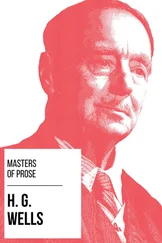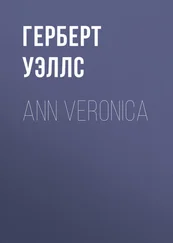interests of the most suitable and various kinds. Presently she
woke up to the fact that there was a considerable group of
interests called being in love and getting married, with certain
attractive and amusing subsidiary developments, such as
flirtation and "being interested" in people of the opposite sex.
She approached this field with her usual liveliness of
apprehension. But here she met with a check. These interests
her world promptly, through the agency of schoolmistresses, older
school-mates, her aunt, and a number of other responsible and
authoritative people, assured her she must on no account think
about. Miss Moffatt, the history and moral instruction mistress,
was particularly explicit upon this score, and they all agreed in
indicating contempt and pity for girls whose minds ran on such
matters, and who betrayed it in their conversation or dress or
bearing. It was, in fact, a group of interests quite unlike any
other group, peculiar and special, and one to be thoroughly
ashamed of. Nevertheless, Ann Veronica found it a difficult
matter not to think of these things. However having a
considerable amount of pride, she decided she would disavow these
undesirable topics and keep her mind away from them just as far
as she could, but it left her at the end of her school days with
that wrapped feeling I have described, and rather at loose ends.
The world, she discovered, with these matters barred had no
particular place for her at all, nothing for her to do, except a
functionless existence varied by calls, tennis, selected novels,
walks, and dusting in her father's house. She thought study
would be better. She was a clever girl, the best of her year in
the High School, and she made a valiant fight for Somerville or
Newnham but her father had met and argued with a Somerville girl
at a friend's dinner-table and he thought that sort of thing
unsexed a woman. He said simply that he wanted her to live at
home. There was a certain amount of disputation, and meanwhile
she went on at school. They compromised at length on the science
course at the Tredgold Women's College--she had already
matriculated into London University from school--she came of age,
and she bickered with her aunt for latch-key privileges on the
strength of that and her season ticket. Shamefaced curiosities
began to come back into her mind, thinly disguised as literature
and art. She read voraciously, and presently, because of her
aunt's censorship, she took to smuggling any books she thought
might be prohibited instead of bringing them home openly, and she
went to the theatre whenever she could produce an acceptable
friend to accompany her. She passed her general science
examination with double honors and specialized in science. She
happened to have an acute sense of form and unusual mental
lucidity, and she found in biology, and particularly in
comparative anatomy, a very considerable interest, albeit the
illumination it cast upon her personal life was not altogether
direct. She dissected well, and in a year she found herself
chafing at the limitations of the lady B. Sc. who retailed a
store of faded learning in the Tredgold laboratory. She had
already realized that this instructress was hopelessly wrong and
foggy--it is the test of the good comparative anatomist--upon the
skull. She discovered a desire to enter as a student in the
Imperial College at Westminster, where Russell taught, and go on
with her work at the fountain-head.
She had asked about that already, and her father had replied,
evasively: "We'll have to see about that, little Vee; we'll have
to see about that." In that posture of being seen about the
matter hung until she seemed committed to another session at the
Tredgold College, and in the mean time a small conflict arose and
brought the latch-key question, and in fact the question of Ann
Veronica's position generally, to an acute issue.
In addition to the various business men, solicitors, civil
servants, and widow ladies who lived in the Morningside Park
Avenue, there was a certain family of alien sympathies and
artistic quality, the Widgetts, with which Ann Veronica had
become very friendly. Mr. Widgett was a journalist and art
critic, addicted to a greenish-gray tweed suit and "art" brown
ties; he smoked corncob pipes in the Avenue on Sunday morning,
travelled third class to London by unusual trains, and openly
despised golf. He occupied one of the smaller houses near the
station. He had one son, who had been co-educated, and three
daughters with peculiarly jolly red hair that Ann Veronica found
adorable. Two of these had been her particular intimates at the
High School, and had done much to send her mind exploring beyond
the limits of the available literature at home. It was a
cheerful, irresponsible, shamelessly hard-up family in the key of
faded green and flattened purple, and the girls went on from the
High School to the Fadden Art School and a bright, eventful life
of art student dances, Socialist meetings, theatre galleries,
talking about work, and even, at intervals, work; and ever and
again they drew Ann Veronica from her sound persistent industry
into the circle of these experiences. They had asked her to come
to the first of the two great annual Fadden Dances, the October
one, and Ann Veronica had accepted with enthusiasm. And now her
father said she must not go.
He had "put his foot down," and said she must not go.
Going involved two things that all Ann Veronica's tact had been
ineffectual to conceal from her aunt and father. Her usual
dignified reserve had availed her nothing. One point was that
she was to wear fancy dress in the likeness of a Corsair's bride,
and the other was that she was to spend whatever vestiges of the
night remained after the dance was over in London with the
Widgett girls and a select party in "quite a decent little hotel"
near Fitzroy Square.
"But, my dear!" said Ann Veronica's aunt.
"You see," said Ann Veronica, with the air of one who shares a
difficulty, "I've promised to go. I didn't realize-- I don't see
how I can get out of it now."
Then it was her father issued his ultimatum. He had conveyed it
to her, not verbally, but by means of a letter, which seemed to
her a singularly ignoble method of prohibition. "He couldn't
look me in the face and say it," said Ann Veronica.
"But of course it's aunt's doing really."
And thus it was that as Ann Veronica neared the gates of home,
she said to herself: "I'll have it out with him somehow. I'll
have it out with him. And if he won't--"
But she did not give even unspoken words to the alternative at
that time.
Part 3
Ann Veronica's father was a solicitor with a good deal of company
business: a lean, trustworthy, worried-looking, neuralgic,
clean-shaven man of fifty-three, with a hard mouth, a sharp nose,
iron-gray hair, gray eyes, gold-framed glasses, and a small,
circular baldness at the crown of his head. His name was Peter.
He had had five children at irregular intervals, of whom Ann
Veronica was the youngest, so that as a parent he came to her
perhaps a little practised and jaded and inattentive; and he
called her his "little Vee," and patted her unexpectedly and
disconcertingly, and treated her promiscuously as of any age
between eleven and eight-and-twenty. The City worried him a good
Читать дальше












